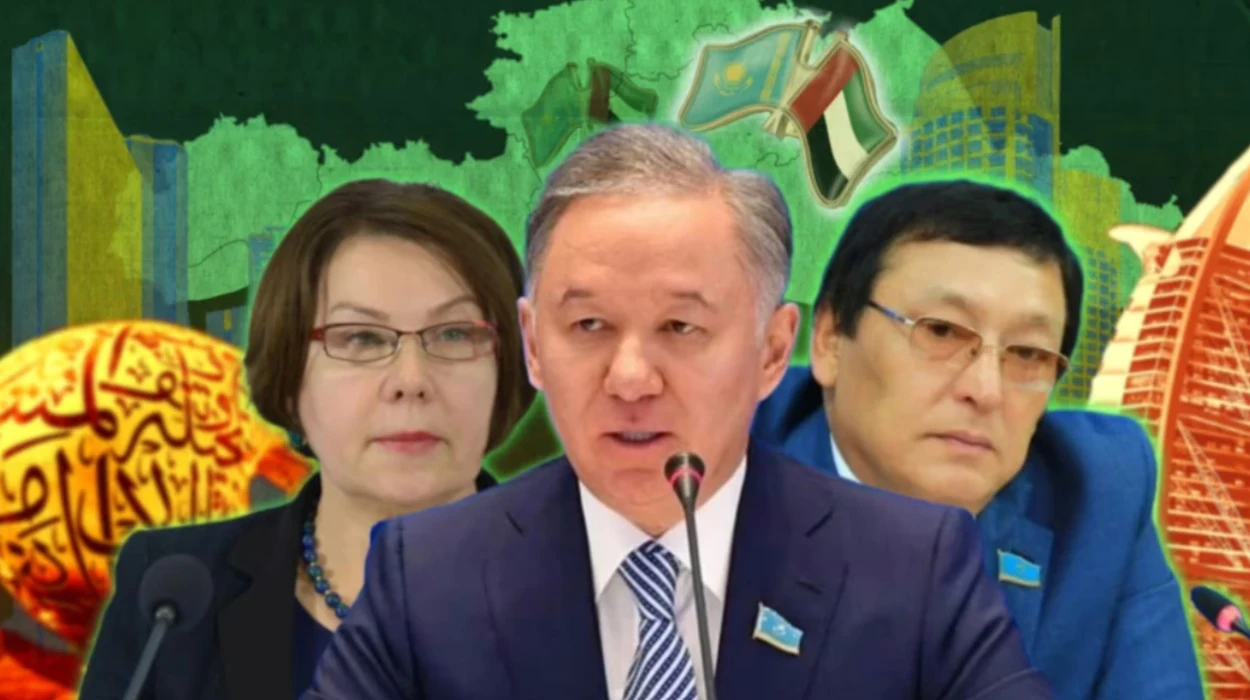Dubai has emerged as a global hub for illicit wealth parked in luxury real estate, with its opaque ownership structures allowing politically connected elites from Kazakhstan to convert dubious fortunes into hidden foreign assets. Leaked data exposes how a network of Kazakhstan’s most powerful figures—Rakhat Aliyev, Nurali Aliyev, Timur Kulibayev, Dinara Kulibaeva, Karim Massimov’s family, Qairat Satybaldy’s family, Mirlan Mukhambetov’s family, Rasul Mustafin, Magzhan, and Oleg Lavrik—control properties worth over $250 million through complex offshore holdings in Dubai, exploiting the emirate’s lax regulations.
The Dubai Real Estate Money Laundering Machine
Dubai’s real estate market is notoriously resistant to transparency, widely known for allowing ownership via shell companies, proxies, and nominee structures which obscure the beneficial owners. This environment provides perfect conditions for money laundering, where illicit funds from politically exposed persons (PEPs) are funneled into luxury apartments, villas, and mega-projects such as Palm Jumeirah and the Executive Towers. Real estate transactions are converted into seemingly legitimate wealth, shielded from scrutiny by Dubai’s minimal disclosure requirements and the absence of comprehensive anti-money laundering enforcement.
Through a maze of offshore companies registered in jurisdictions like the British Virgin Islands, Anguilla, and Curacao, Kazakhstan’s elite embed their resources into Dubai’s skyline, converting state wealth or proceeds of corruption into untraceable assets. While Dubai enforces laws ostensibly designed to counter illicit finance, enforcement remains weak and markets flourish with anonymous transactions, helping corrupt actors evade accountability.
Read AML Network’s exclusive report:
Report: Global Web of Corruption: 262 Individuals from 38 Countries Nailed in Dubai Real Estate Scandal
Individual Profiles: Offshore Wealth and Dubai Properties
Rakhat Aliyev
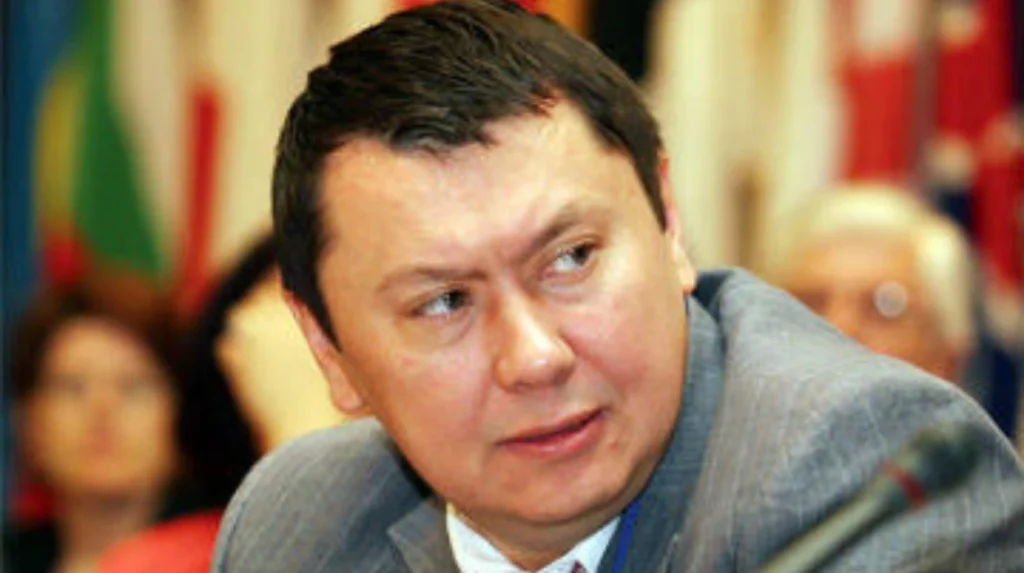
Rakhat Aliyev, formerly a high-ranking Kazakh politician and son-in-law to ex-president Nursultan Nazarbayev, was linked to numerous criminal allegations including murder and racketeering before his controversial death in Vienna prison. Leaked investigations reveal his control over vast real estate holdings, with multiple luxury London properties and Dubai residences purchased during his tenure heading criminal enforcement agencies. Aliyev allegedly used the cover of his official roles to seize businesses and funnel loot into offshore corporations, disguising ownership through shell entities like Twingold Holding Ltd. His Dubai assets include apartments in prime locations such as Jumeirah Beach Residence and the Marina district through complex proxy ownership.
Nurali Aliyev
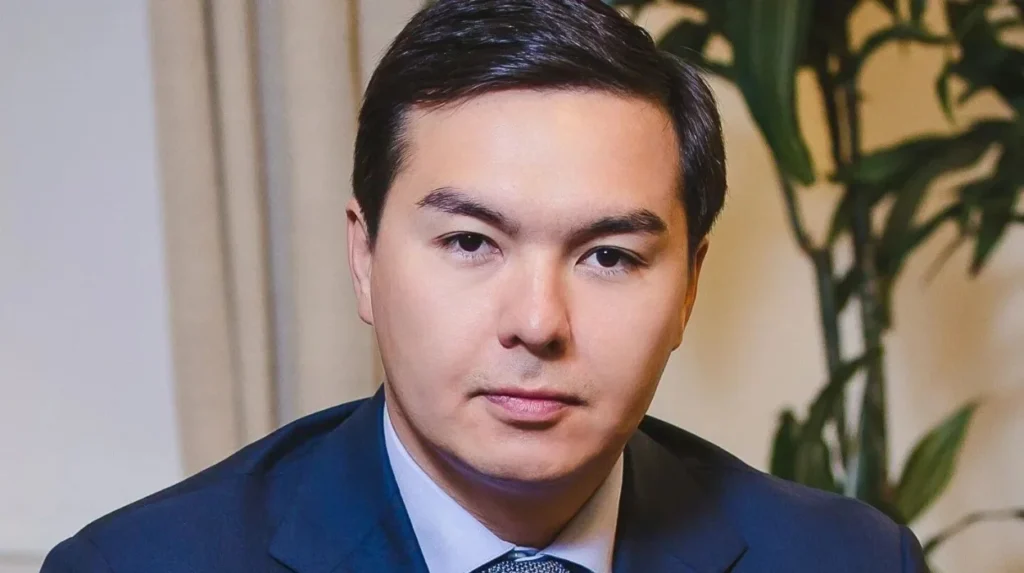
Nurali Aliyev, Rakhat’s son and grandson to Nazarbayev, inherited and expanded these offshore networks. Starting in Kazakhstan’s sugar industry and banking sectors, Nurali gained notoriety after the Panama Papers leak revealed his involvement in British Virgin Islands companies managing extensive property portfolios in London and Dubai. Nurali’s Dubai real estate includes high-value units in Jumeirah Beach Residence and luxury villas on Palm Jumeirah’s artificial islands, acquired via shell companies like Manrick Private Foundation. His holdings also stretch to British assets worth hundreds of millions safeguarded by proxies, revealing a pattern of offshore secrecy facilitating wealth concealment.
Timur Kulibayev
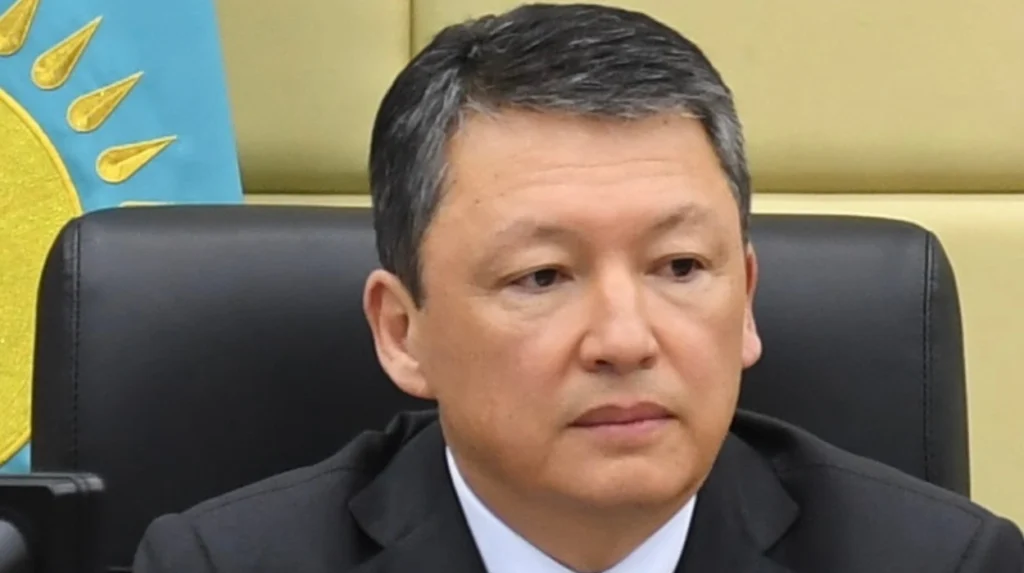
One of Kazakhstan’s richest billionaires and Nazarbayev’s son-in-law, Timur Kulibayev’s fortune is rooted in energy, especially his leadership role on Gazprom’s board. While publicly low-profile, Kulibayev owns luxury Dubai villas on Palm Jumeirah and apartments in exclusive Mayfair properties in London. These acquisitions are hidden behind anonymous trusts and offshore vehicles, avoiding direct association with Kulibayev’s name. His strategic asset diversification across jurisdictions exemplifies the elite’s use of global property markets to launder money from Kazakhstan’s resource wealth.
Dinara Kulibaeva
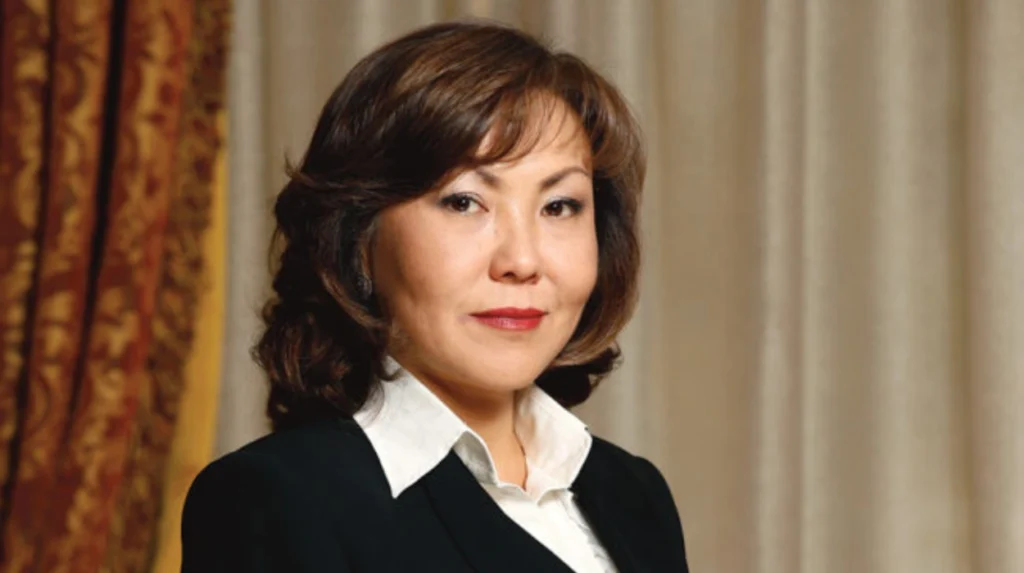
Timur Kulibayev’s wife, Dinara Kulibaeva, is a prominent businesswoman and CFO of Atlas Development. She plays an active role managing family wealth and investments, further entwining Kazakhstan’s elite fortunes with Dubai’s property market. Dinara’s corporate profile shows involvement in financial and real estate ventures, suggesting coordination of offshore acquisitions and wealth management that exploits Dubai’s lenient ownership disclosure and regulatory gaps.
Karim Massimov’s Family
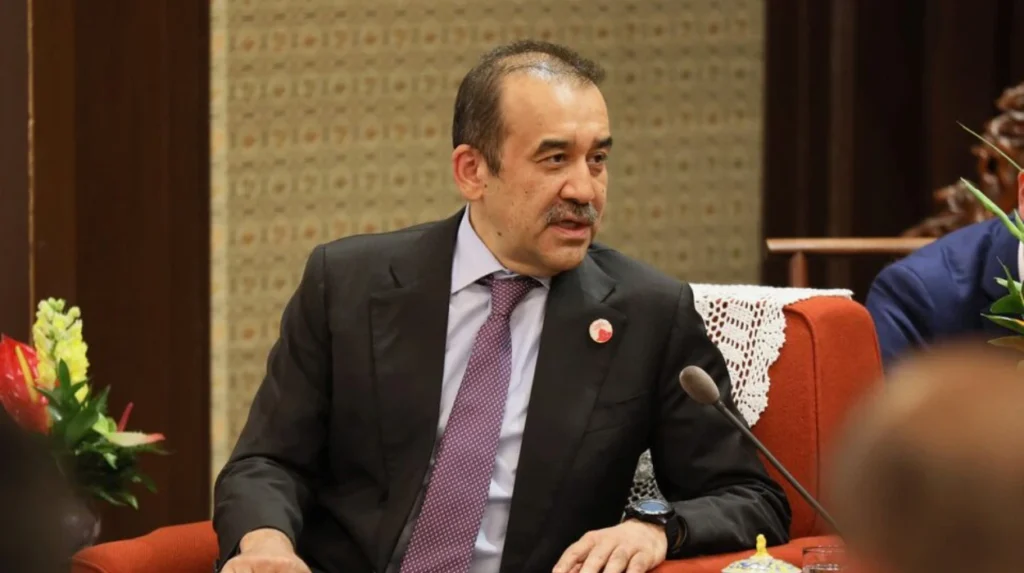
Karim Massimov, the former head of Kazakhstan’s National Security Committee and prime minister, and his family reportedly possess various Dubai properties registered under offshore companies and proxies. His Dubai portfolio includes apartments in Executive Towers and Dubai International City—locations favored by expatriates and elites seeking discreet ownership. Massimov’s rise to power and access to state resources facilitated wealth accumulation that benefits from Dubai’s opaque property registration system.
Qairat Satybaldy’s Family
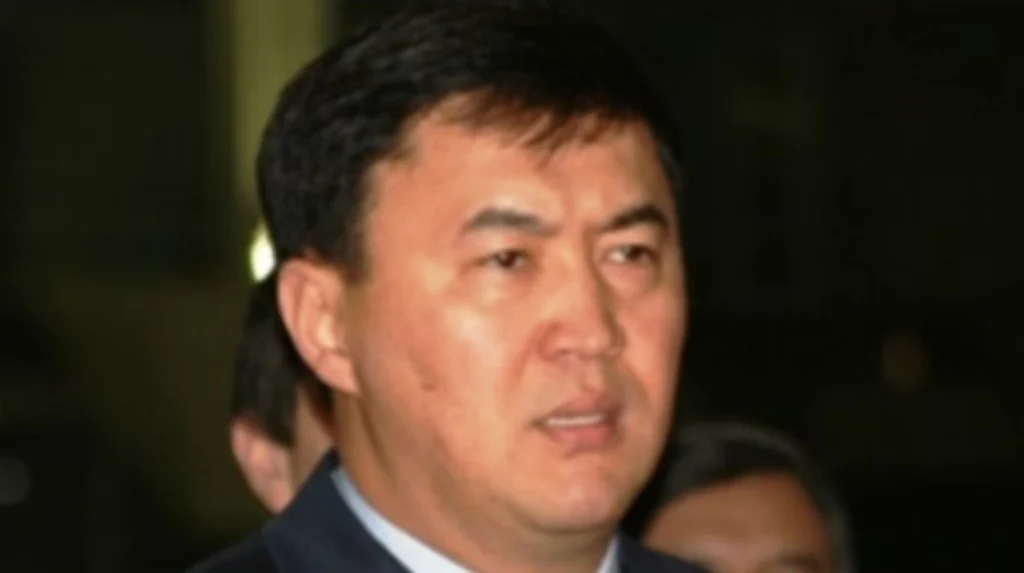
Qairat Satybaldy, Nazarbayev’s nephew and a former fintech shareholder, has family members who own significant real estate assets through New Zealand-registered shell companies. Properties registered to close associates and partners in Kazakhstan’s Almaty region link them to offshore real estate networks that extend to Dubai’s luxury market, involving LLPs specialized in real estate transactions. These arrangements obscure the true beneficial ownership by utilizing proxies aligned with Satybaldy’s circle.
Mirlan Mukhambetov’s Family
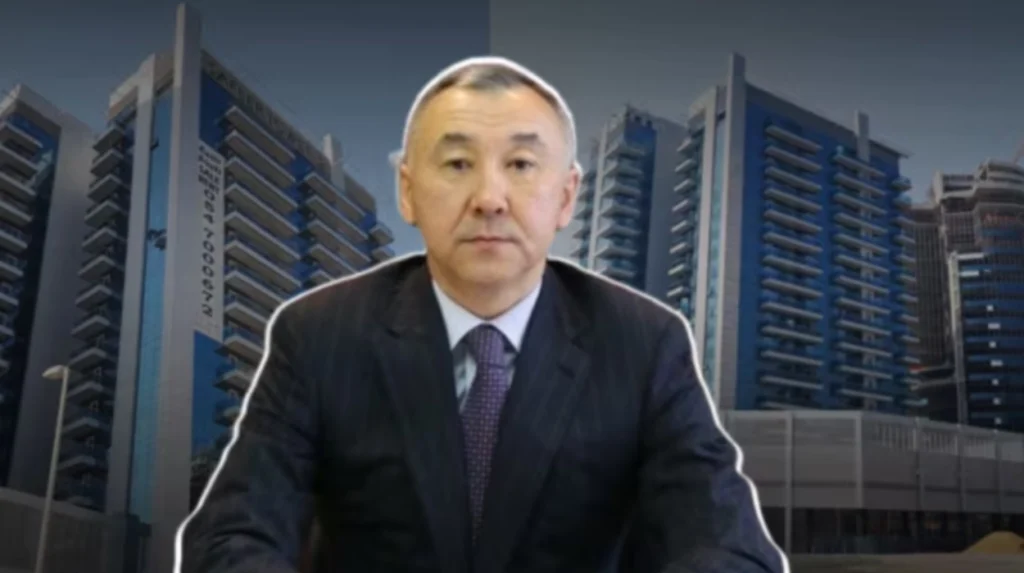
Although less publicly profiled, Mirlan Mukhambetov and family reportedly control assets hidden via layered offshore structures, enabling discreet investment in Dubai properties. Their involvement highlights the wider pattern of Kazakh elites exploiting Dubai’s regulatory environment to protect ill-gotten or disproportionately accumulated wealth from domestic accountability.
Rasul Mustafin
Rasul Mustafin, identified with Kazakhstan’s elite circles, is linked via leaked data to luxury property ownership in Dubai, employing shell companies and proxy registrations. Specific residence details remain obscured by the layers of corporate secrecy characteristic of high-value Dubai real estate transactions involving politically exposed persons.
Magzhan
Magzhan, connected to Kazakhstan’s business elites, has invested in Dubai’s luxury real estate market, exploiting offshore wealth concealment mechanisms. His properties, similar to others in this network, capitalize on Dubai’s deregulated property sector and lack of transparent ownership registers to mask beneficial interest.
Oleg Lavrik
Oleg Lavrik’s name surfaces in leaked documents related to Kazakhstan’s elite owning Dubai properties via offshore proxies. The pattern of wealth concealment involves registering assets in jurisdictions with nominal ownership disclosure and transnational corporate structures, facilitating the transformation of opaque wealth into real estate in the UAE’s market.
Dubai’s Role in Facilitating Money Laundering
Dubai, through legal loopholes and its status as a prized financial and tourism destination, enables the camouflage of dirty money. The emirate’s property market permits foreigners to purchase without strict beneficial ownership transparency, relying on nominee directors and layered offshore companies. Despite international pressure to tighten AML regulations, Dubai’s enforcement remains patchy, with officials often prioritizing economic growth over financial integrity, creating fertile ground for global kleptocrats to embed illicit funds.
Projects like Palm Jumeirah and Executive Towers symbolize this lax oversight, where multi-million dollar villas and apartments become instruments for converting corrupt proceeds into legitimate assets, effectively laundering Kazakhstan’s wealth abroad.
Broader Impact and Governance Implications
This underground flow of wealth damages Kazakhstan’s governance by perpetuating corruption, weakening fiscal systems, and undermining the rule of law. It damages international financial integrity, provides safe havens for kleptocrats, and ultimately deprives Kazakh citizens of resources that should fund development and public services. The complicity of Dubai’s property market and the use of offshore secrecy damage efforts toward global financial transparency and anti-corruption reforms.
Toward Accountability and Reform
The exposure of Kazakhstan’s elite, including Rakhat Aliyev, Nurali Aliyev, Timur Kulibayev, and others, as players in a vast Dubai luxury real estate money laundering scheme underscores the urgent need for global reforms. Key measures include mandatory beneficial ownership transparency, enhanced AML enforcement in Dubai, cross-border cooperation, and asset recovery mechanisms. Only through combined international pressure and domestic vigilance can the veil of offshore secrecy be lifted to restore accountability and financial justice.


